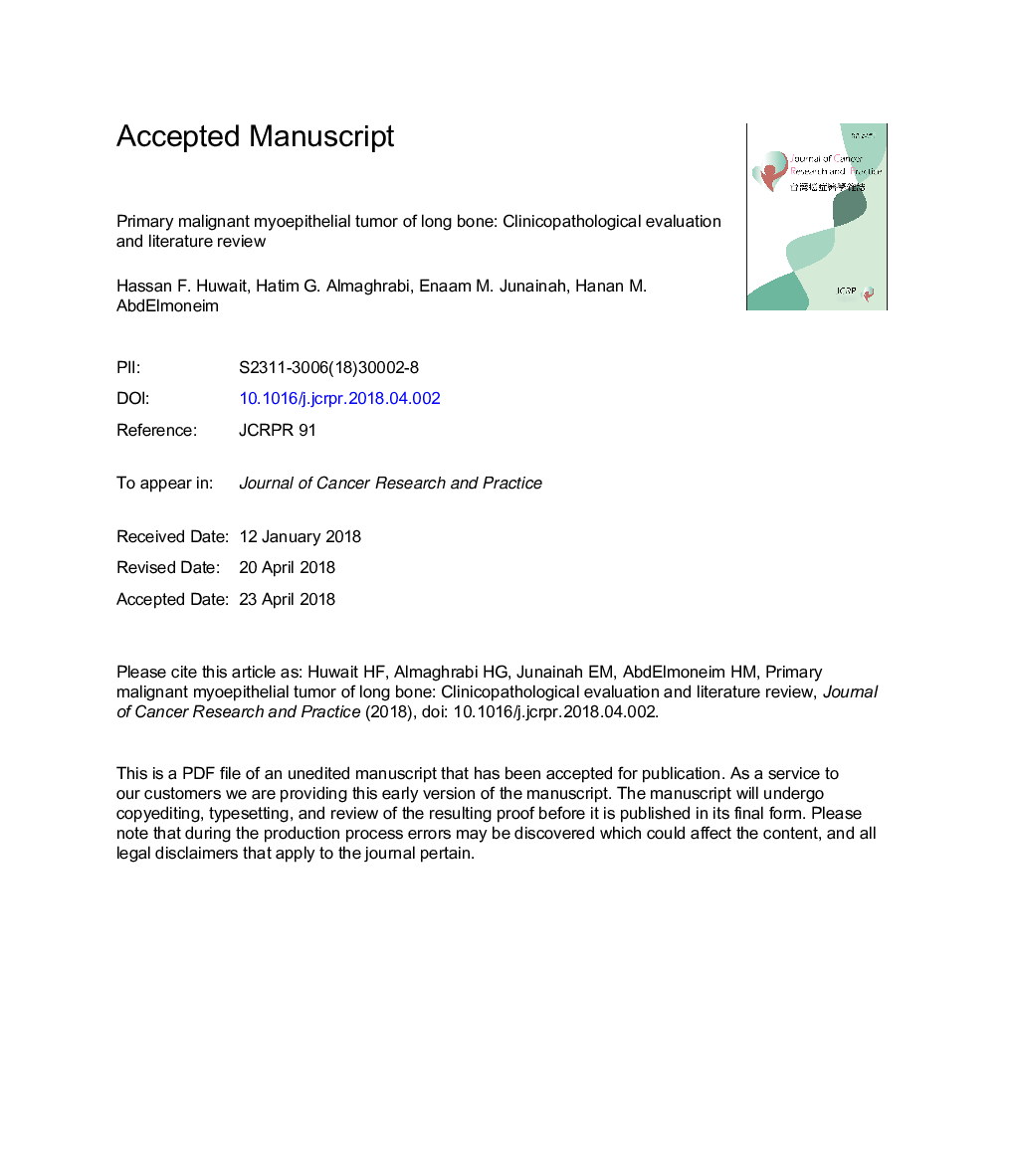| Article ID | Journal | Published Year | Pages | File Type |
|---|---|---|---|---|
| 8958382 | Journal of Cancer Research and Practice | 2018 | 16 Pages |
Abstract
Malignant myoepithelial tumors are a type of recently recognized tumor that occur primarily in soft tissue characterized by myoepithelial elements without ductal differentiation. It appears that this type of tumor may be related to parachordoma or mixed tumor. However, only a small number of cases have been described in the submandibular, parotid and accessory glands, and bone is an extremely rare site for myoepithelial tumor presentation. We herein report a rare case of a 56-year-old woman diagnosed with primary malignant myoepithelial tumor originating in the tibia. Histologically, the tumor was composed of a nodular spindled and epithelioid neoplasm with mild to moderate nuclear pleomorphism embedded within variably collagenous, myxoid and chondromyxoid stroma. Immunohistochemistry staining showed tumor cells that were strongly positive for S100 protein, epithelial membrane antigen, vimentin and focally positive for p63 and cytokeratins (AE1/AE3); they were negative for desmin, smooth muscle actin, HMB45, Melan-A, CD99 and bcl2. This is all consistent with the phenomenon of myoepithelial differentiation. Additionally, Fluorescence in Situ Hybridization (FISH) was shown to be positive for EWSR1 translocation. Ultimately, the final diagnosis was primary myoepithelial carcinoma of bone. The patient was free of disease after three years of follow-up. In this article, we have shared our experience in documenting this rare medical entity, to clarify the crucial need for distinguishing myoepithelial carcinoma from primary benign and malignant bone and cartilage forming tumors.
Keywords
Related Topics
Health Sciences
Medicine and Dentistry
Oncology
Authors
Hassan F. Huwait, Hatim G. Almaghrabi, Enaam M. Junainah, Hanan M. Abd ElMoneim,
